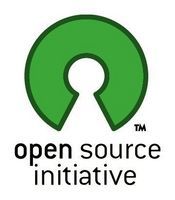SMB Keeps IT Simple With 30-Second Rule
The COO of FedArb says if he can't explain a new technology or app to his users in 30 seconds, it fails. His users are retired federal judges.


9 Bargain IT Tools For SMBs
9 Bargain IT Tools For SMBs (click image for larger view and for slideshow)
Think your users are demanding? Try supporting a group of retired federal judges.
Such is the case for FedArb and its COO and co-founder Jay Weil. The growing firm manages a private court system for arbitration and mediation of complex civil litigation, essentially offering an alternative to the public court system. In addition to a corporate staff of 10, FedArb employs 42 retired federal judges who oversee the hearing and resolution of all cases. The company runs a truly virtual office; almost everyone works remotely across different time zones.
Actually, the judges are a pleasure to work with and quite tech-savvy, Weil said in an interview. They're all using PCs or Macs, they all have iPhones or other smartphones, and they typically stay very current with technology. But the virtual, 24-7 nature of Federal Arbitration's operations – according to Weil, someone, somewhere is always working on a case, 365 days a year -- leaves little room for technology learning curves. Anything Weil deploys needs to work -- and fast.
"They have no time to learn," Weil said. "If you can't explain something in less than 30 seconds, forget it. For me, [anything that takes longer] is unacceptable -- that means it's too complicated. Whatever is in place should be totally intuitive to everything else that they're used to doing."
[ Here's how one small law firm stays ahead of the big data curve. Read How A Boutique Law Firm Handles Big Data. ]
As a result, that requirement leads just about any IT decision or acquisition. The company runs largely on a custom-built case management system. One of the most common user needs is the ability to share large, confidential files. FedArb got by on email for a while, but as file sizes continued to grow, email was no longer suitable. Weil was frustrated by the glut of cloud apps that, in his view, are more suitable for backing up or distributing files than sharing and collaborating on them. FedArb now runs Pertino's network-as-a-service platform. That choice came as a result of his ease-of-use mandate. While FedArb maintains its own servers for security, availability and other reasons, Weil said that a traditional VPN didn't pass the 30-second test.
"What we needed was a VPN without having to go through the nightmare of configuring, setting it up and then actually using it," Weil said. "[Users] shouldn't have to learn anything new."
As for everything else in FedArb's IT portfolio? "The rest is, at this point, pretty vanilla," Weil said. "The expectation is that it should just work." The company uses everyday applications like Excel, Google Docs and Skype, for example. There is little in the way of complexity; in effect, FedArb lives by the old KISS principle: Keep it simple, stupid.
With more and more startups and small businesses running virtually rather than in a traditional office environment, FedArb offers one model of how to do this successfully. For starters, Weil noted that if you want to truly run an "always-on" environment, you need people spread across many time zones. He's also a fan of operational redundancy to prevent burnout. FedArb assigns multiple case managers in different locations to each case, Weil said, "so that it's not always the burden on one single individual. It takes some time to set it up that way." On the ease-of-use front, Weil, who considers himself fairly technically savvy, is a one-man screening process. "If I can't figure it out in a couple of minutes without the manual, then sorry, it doesn't pass my test," Weil said. "From then on, I should be able to run it and explain it to people very, very quickly. If I can't, then it's too complicated. I've used that rule for a long time."
He also offers this advice on IT acquisitions in small-business environments: "Define what you need, rather than looking at what's available and [making] that fit what you're trying to do. Sometimes it's worth waiting a bit until the right solution is available rather than trying to shoehorn [one] that really is not designed to provide what you're looking for. Eventually, you'll suffer the consequences."
Weil's rigorous standards on ease of use have kept him in good stead. He doesn't hear the kinds of end-user grumbling that makes some IT pros claw their hair out. "I don't ever want to hear from a judge or anyone else, 'Jay, what are you trying to do to me? What is this?'" Weil said. He sees this as a matter of corporate culture; in FedArb's case, that culture mirrors the precision and transparency of the judges, who always make clear what they need and what they don't want from a technology standpoint.
"Our philosophy is very much quality of service and responsiveness, and ease of use is the key," Weil said. "We're not going to veer from that in any way. I think that's important. Smaller companies, especially, a lot of times [say]: 'Well, we'll let it go this time.' I've been around a long time, and those things come back to bite you."
Attend Interop Las Vegas May 6-10, and attend the most thorough training on Apple deployment at the NEW Mac & iOS IT Conference. Join us in Las Vegas for access to 125+ workshops and conference classes, 350+ exhibiting companies, and the latest technology. Register for Interop today!
About the Author
You May Also Like






